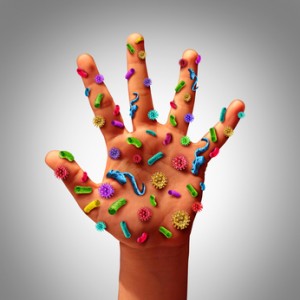 In June of 2015, AquaNew presented an article entitled, “Healthy Sanitation” that discussed harsh chemicals used in cleaning solutions and how they may be damaging to skin cells (or worse). Now, it appears that certain chemicals used in antibiotic soap, and added to many consumer products—including clothing, kitchenware, furniture, and toys—to prevent bacterial contamination, may also be harmful. According to the U.S. Food and Drug Administration (FDA), long-term use of some of these chemicals may potentially disrupt hormonal function and contribute to bacteria resistance to antibiotics.
In June of 2015, AquaNew presented an article entitled, “Healthy Sanitation” that discussed harsh chemicals used in cleaning solutions and how they may be damaging to skin cells (or worse). Now, it appears that certain chemicals used in antibiotic soap, and added to many consumer products—including clothing, kitchenware, furniture, and toys—to prevent bacterial contamination, may also be harmful. According to the U.S. Food and Drug Administration (FDA), long-term use of some of these chemicals may potentially disrupt hormonal function and contribute to bacteria resistance to antibiotics.
The referenced AquaNew June 2015 article above featured the most natural and safe formula for sanitation: adding hydrogen peroxide at a low concentration to Polarized Water. In the interim since our article, a utility patent application was filed with the U.S. Patent and Trademark Office (USPTO) this summer that included research performed by Rob Gourley (Polarized Water Inventor), as confirmed by at least one medical research laboratory: that the molecular structure of Polarized Water stabilizes hydrogen peroxide, which otherwise will rapidly decompose into water and oxygen.
FDA Final Rule
On September 2, 2016, the FDA issued a final rule on banning the use of 19 chemicals which are or were former active ingredients in certain Over-the-Counter (OTC) consumer antibacterial soaps and body washes that are used with water – including liquid, foam, gel hand soaps, and bar soaps. This rule is separate from any ongoing FDA investigations of active chemical ingredients in antibacterial soaps used in hospitals, and for hand sanitizers and hand wipes.
 Manufacturers have one year to comply with this new rule. Two of the banned antibacterial active ingredients – triclosan and triclocarban – will no longer be able to be marketed. When we searched Amazon using the terms “antibacterial deodorant soap” and “antibacterial hand soap,” some well-known product brands identified these two chemicals as active ingredients on their labels. These same leading brands claim “kills or eliminates 99.9% of germs.”
Manufacturers have one year to comply with this new rule. Two of the banned antibacterial active ingredients – triclosan and triclocarban – will no longer be able to be marketed. When we searched Amazon using the terms “antibacterial deodorant soap” and “antibacterial hand soap,” some well-known product brands identified these two chemicals as active ingredients on their labels. These same leading brands claim “kills or eliminates 99.9% of germs.”
Kills 99.9% Germs … or Maybe Not
Back in 2013, the FDA issued a proposed rule requiring safety and efficacy data from manufacturers if they wanted to continue marketing antibacterial products containing identified active ingredients including triclosan and triclocarban. According to the FDA, “Very little information” was provided to prove safe daily use over a long period of time. Certain manufacturers decided instead to change their active ingredients in advance of the final FDA rule.
Also, according to Theresa M. Michele, MD, of the FDA’s Division of Nonprescription Drug Products, manufacturers did not show the FDA-banned ingredients to be any more effective than plain soap and water in preventing illnesses and the spread of certain infections. “Following simple hand washing practices is one of the most effective ways to prevent the spread of many types of infection and illness at home, at school and elsewhere.” Dr. Michele continued, “We can’t advise this enough. It’s simple, and it works.”
Simply Natural Sanitation is Most Effective
We agree with Dr. Michele. If anyone has a way to introduce the combination of Polarized Water and low concentration of hydrogen peroxide to Dial Soap/Henkel Corporation, Colgate-Palmolive, Procter & Gamble or any other manufacturer of antibiotic consumer products, we would appreciate knowing. You may contact Rob Gourley at 941-923-8972 or email at dana@aquanew.com.
